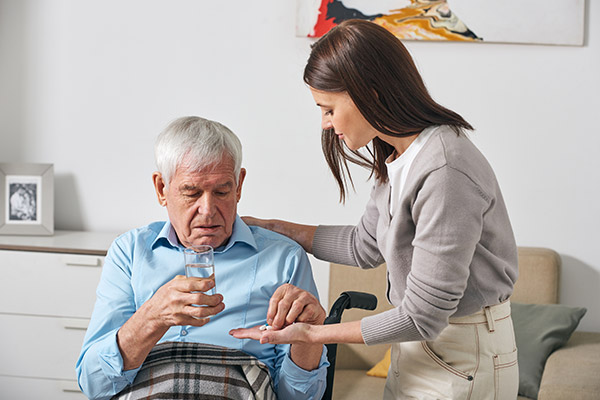One in five people will experience a stroke in their lifetime. The probability of getting a stroke increases with age. Strokes are the number 5 leading cause of death in the United States and the number 1 cause of disability. A stroke occurs when a certain part of the brain stops receiving blood due to a blood clot or a blood vessel rupturing. The brain is the most important part of our bodies. It controls how the rest of the body functions and without it we would not be able to live.
Lack of blood to the brain, even for a couple of seconds can completely change someone’s life forever. It can cause long-term disabilities such as paralysis, speech problems, memory loss, and vision problems.
The likelihood of long-term effects is reduced the faster a stroke is treated.
Identify the symptoms of a stroke by using F.A.S.T.
F – Face drooping.
When someone’s face is numb or looks droopy it is a sign that they are having a stroke.
If you are unsure if they are experiencing this symptom, you can ask them to smile and if their face is uneven then it is drooping.
A – Arm Weakness.
Having a weak and numb arm is a sign of a stroke.
You can ask the person to raise their arms and if one arm does not go as high as the other one, then they are experiencing the arm weakness symptom.
S – Speech.
If a person’s speech is slurred or hard to understand, then they are experiencing this symptom.
Ask a person to repeat the same sentence or word multiple times and see if their speech is different than usual.
T – Time to call 9-1-1.
If someone shows any of the symptoms above, then you should call 9-1-1 immediately.
Even if the person’s symptoms go away, you should still take them to a hospital to ensure they are receiving the care they need.
Other symptoms of a stroke are sudden numbness, confusion, sudden trouble seeing, trouble walking, and sudden severe headaches.
The longer a stroke occurs, the more long-term damage a person will experience.
Make sure to go to the hospital and call for help if you or anyone you know is experiencing these symptoms.
Always remember F.A.S.T.
https://www.stroke.org/en/about-stroke
